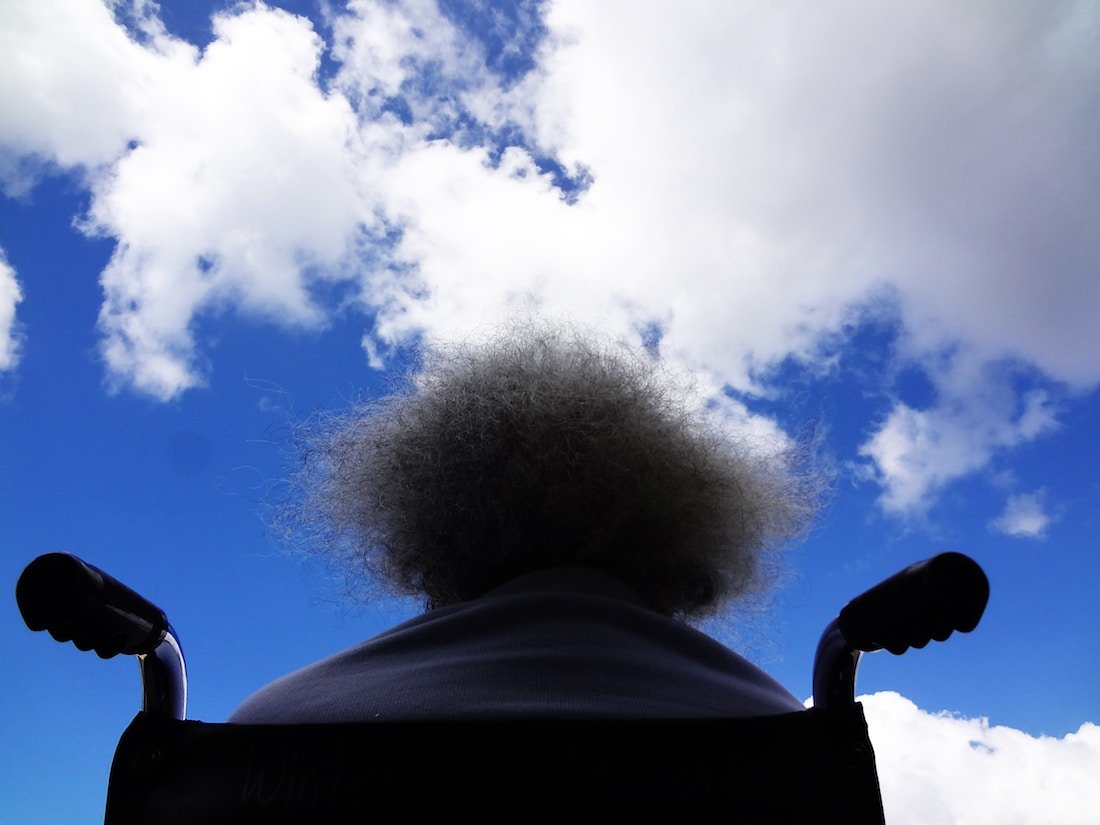You should be aware of the most common vascular dementia symptoms as it is one of the most widespread. In this day and age, there are hundreds of thousands of people all around the globe that suffer from the condition.
According to the statistics, the number keeps on rising with each passing year. It is expected to be in multiple millions not that many years from now.
While, at the time of writing this, we cannot prevent dementia (any type), we need to be familiar with its symptoms. Only then, we can act accordingly and help ease the disease.
Let’s find out more about the symptoms of vascular dementia.
What is vascular dementia and its symptoms
In short, vascular dementia is when the brain lacks blood flow. In other words, brain cells do not receive enough blood on what damages and even kills them.
Even the smallest brain injury due to poor blood flow can affect the overall condition of a human being significantly.
When the brain lacks blood flow consistently, the effects may cause the development of vascular dementia. One of the most common causes is a stroke.
Bear in mind, although vascular dementia is the second most regular, it is considered underdiagnosed.
That said, today, we will look at the most common vascular dementia symptoms which will give you a better understanding of the disease.
Vascular Dementia Symptoms
1. Sudden and Frequent Headaches

Based on the underlying cause and also each individual case from one person to the next, vascular dementia symptoms vary significantly.
However, experiencing sudden and frequent headaches is amongst the earliest signs that someone is suffering from the condition. Headaches can strike any (random) time, meaning, they appear unexpectedly.
When experienced frequently following a medical event like suffering from a stroke is highly likely to have a connection with the onset of vascular dementia.
Vascular dementia comes about when there is inadequate blood flow going to the brain. It could also be the result of damaged blood vessels in the brain and these initial changes manifest as headaches.
2. Confusion

In essence, Vascular dementia collectively describes reasoning, judgment, memory, and planning problems associated with changes in blood flow supply to the brain.
Confusion is amongst the first of the cognitive symptoms that we associate with the condition. Worth noting is that the symptoms also vary depending on the part of the brain that is suffering from impaired blood flow.
Most of the symptoms are similar to those experienced with other types of dementia particularly Alzheimer’s disease. The weakness to think clearly or suffering from a sense of present awareness accompanies several conditions including vascular dementia.
It marks an inability to process thoughts in a linear way as well as the inability to recall information.
3. Trouble Concentrating

A person who has vascular dementia often starts having problems with finishing tasks to their completion. They could start an activity like cooking a meal and find it difficult to follow the recipe causing them to abandon the task eventually.
It is accompanied by a loss of alertness affecting the ability to start even the simplest of tasks. Everyone does suffer from troubles with concentrating now and then.
However, when it comes to vascular dementia the problem is more pronounced and it affects every facet of life. The worsened state also has an impact on a person’s ability to learn new skills or internalize information.
4. Disorientation

Disorientation is also one of the vascular dementia symptoms that are common to several other conditions. It affects the sense of direction and may fall on the mild to severe range.
Once again based on an individual’s particular state in terms of the progression of dementia. Also worth putting down is that vascular dementia worsens over time. Meaning, if not diagnosed early enough, it is virtually untreatable.
Also, a majority of these physical symptoms often strike at the same time.
For example, the person might experience sudden headaches followed by confusion or disorientation. The state of disorientation is also often accompanied by blurred vision.
5. Hallucinations or Delusions

Experiencing hallucinations are quite a common symptom by people suffering from progressive neurological conditions like Parkinson’s disease, Alzheimer’s and vascular dementia.
The state of delusion leads a person with dementia to see, taste, hear, smell, or even see things that do not really exist in reality.
It also causes the person suffering from hallucinations to feel frightened, nervous and paranoid around people they do not trust.
Given that experiencing frequent hallucinations points out to an underlying cause, it can help diagnose vascular dementia when seeking medical treatment.
However, given that it is a symptom experienced with multiple other conditions including schizophrenia. It might sometimes lead to a misdiagnosis.
6. Mood Regulation Problems

Mood regulation issues are amongst the very initial vascular dementia symptoms a person can experience. When encountering multiple small strokes or other conditions that affect the brain’s blood vessels as well as nerve fibers it might lead to gradual changes in thinking.
It worsens as the damage accumulates and manifests itself through impaired judgment. That is what causes someone with the condition to laugh or cry uncontrollably entirely out of the blue.
A person with dementia might also experience a profound sense of apathy.
They show a lack of interest or enthusiasm in different situations. It may also cause the person with dementia to start behaving in a way that seems out of character or unusual.
7. Difficulty Speaking Or Understanding Speech

A person’s inability to express themselves fluently in social situations, as well as their ability to pay attention, might point out to the condition.
The degeneration of neurons, the brain’s cells, affects several body functions that rely on the brain for “direction.” The ability to pronoun words and maintain a normal speed when speaking is one of the challenges people with dementia face.
It is also often accompanied by a slower speed of thought which indeed affects speech processing and response in social situations.
Often, it is a problem experienced by those who have had strokes before and speech therapy works as a treatment option.
8. Memory Loss

Memory loss is one of the vascular dementia symptoms that develop over time. The brain more or less functions as a “store.” It stores and retrieves the information to assist the functions of the body.
When paths that relay and convey the essential information is damaged it causes memory loss. This is one of the symptoms that are very much like what is experienced by someone suffering from Alzheimer’s disease.
As a person with dementia suffers from severe cases of disorientation or confusion, it gravely affects their reasoning. It starts with instances of forgetting names or recent events gradually working its way up to forgetting the sequence of daily tasks.
9. Clumsiness and Unsteady Gait

Attributing clumsiness or an unsteady gait to the condition is not very common. But the two sure are symptoms of vascular dementia.
In reality, several other factors can create an abnormality in walking because prior or underlying diseases are usually the root cause of the problem.
Damages present in the part of the nervous system tasked with controlling movement are what affect gait. It can end up resulting in a long-term problem when left untreated.
In turn, it affects the ability to perform daily tasks. It is most common in people who have subcortical vascular dementia also known as Binswanger’s Disease (BD) which affects the brain’s white matter.
10. Lack of Bowel or Bladder Control

Loss of bowel or bladder control is one of the other symptoms related to the subcortical version of the condition.
Medically referred to as incontinence, the loss of bladder control causes the unintentional passing of urine and it affects millions of people.
Often, it is attributed to aging but several other factors can contribute to developing incontinence. During the initial stages of vascular dementia, the problem is treatable through the various therapies available to people suffering from incontinence.
Treatment options include pelvic floor exercises, lifestyle changes such as cutting back on caffeine and alcohol. Additionally, severe cases require surgical intervention but there are also different incontinence products to alleviate the condition.
11. Numbness Or Paralysis

As the condition progresses, numbness or paralysis is experienced as one of the advanced vascular dementia symptoms. It could attack the face and affect the person with dementia’s facial expressions.
The numbness or paralysis might also affect one side of the face or body, which in turn limits the person’s ability to carry out their daily tasks.
In such cases, round-the-clock assistance from a caregiver is a must to help a person with dementia to carry out their everyday tasks.
Once vascular dementia reaches the full-blown stage, treatment options are insufficient.
While Alzheimer’s drugs can offer some help initially, they only provide temporary relief without necessarily preventing the decline of memory and thinking skills.
12. Lack of Interest in Daily Activities

One of the common vascular dementia symptoms is when one loses interest in daily activities. Not only that, but he or she has a problem completing mundane tasks.
What was once kids’ stuff, all of a sudden becomes a struggle.
If you notice a significant change in daily activities in your relative, observe carefully how it progresses. Bear in mind, if it is just a one-time thing, there is no need to call the doctor just yet.
However, if it keeps appearing on a regular basis, taking action is highly advisable. It is the small things and details that we should not miss when watching over an older adult before it is too late.
13. High Blood Pressure

If an individual has high blood pressure, they are more likely to experience vascular dementia.
Of course, some people have high BP and never get any dementia in their lives. Dementia is a very individual type of disease, meaning, each and every single person experiences it differently.
While high blood pressure is a factor for numerous illnesses, vascular dementia is also one of them.
However, there are simple lifestyle changes one can incorporate that will contribute to better health. With that in mind, a soon as your doctor tells you you have high BP, it is important that you start incorporating a healthy lifestyle immediately.
Of course, you do not want to transition to it in a day, as it might be shocking for your body and you can do more harm than good. Slowly progress to a clean diet, exercise, fresh air, more water and similar over at least a period of a week (if not more).
14. Thinking slows

When the person starts to show the first signs of vascular dementia, one of them is the inability to think accurately. In other words, their thinking slows down, making them take way longer to process the information as they used to.
When it comes to words and sentences, they begin to take the time to go over them before they respond. At this time, as a caregiver or family member, you should be patient. One thing that you must not do is to start urging them to think and respond faster.
This will only irritate the person, which can lead to a fight and other inconveniences.

